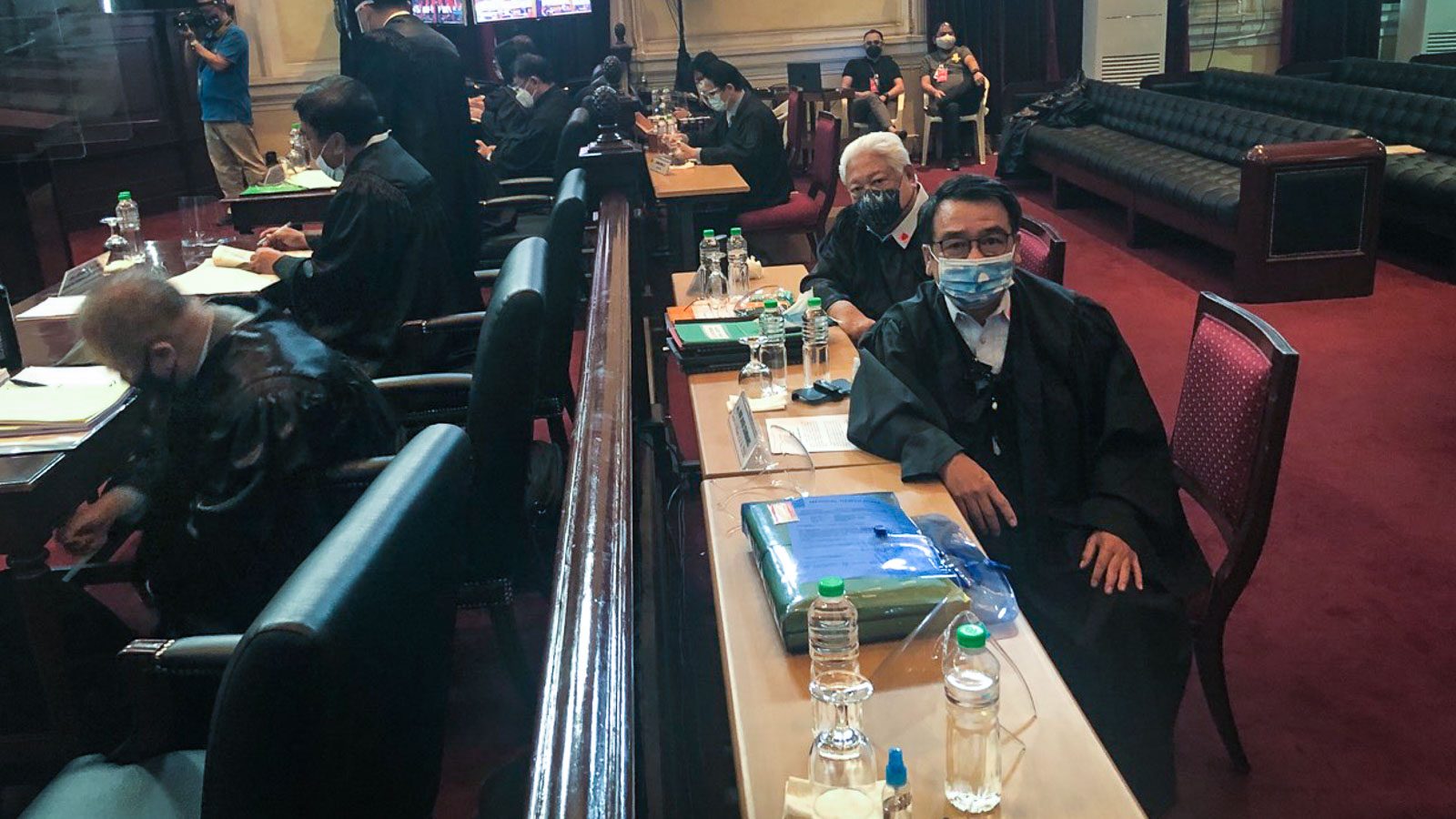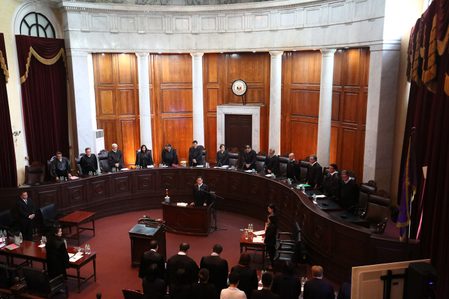SUMMARY
This is AI generated summarization, which may have errors. For context, always refer to the full article.

A Supreme Court under pressure has made the move to investigate killings of lawyers, with the goal of reviewing special rules like the protective writs, but it is doing so only after a decade of repeated pleas to revise and strengthen them.
In a rare move, the Supreme Court publicly spoke through a statement on Tuesday, March 23, announcing a 5-week information gathering on the extent of threats against lawyers, after which “the Court will then decide on the next courses of action, including the amendment of the relevant rules, or if necessary, the creation of new ones.”
“We have been sounding out the clarion call and providing information and concrete recommendations for the longest time,” said Edre Olalia, president of the National Union of Peoples’ Lawyers (NUPL).
After the Supreme Court streamed its statement on Tuesday, Olalia said: “It is generally both comforting and reassuring to the legal community even as it took some precious time to happen and at great cost.”
In 2009, two years after the Supreme Court promulgated the rules on the writs of Amparo (protection) and habeas data (destroy damaging information), Olalia and the NUPL submitted to the Court an assessment, detailing the practical inefficiencies of such writs.
“Since there has been not a whit of change in the Rules since 2007, it is a fair assumption that nothing came of it,” said Olalia.
Former Supreme Court spokesperson and criminal law expert Ted Te said the Court, with this action, is indicating “that it wants to strengthen the writs pending any other initiatives to amend or come up with new rules.”
“Because of recent events where Amparo and habeas data have not been shown to be very effective, [the Court’s action] must be considered significant,” said Te.
The writs are not the same
The writs of amparo, habeas data, and even the pre-war writ of habeas corpus (against illegal detention), are said to have weakened especially under the time of President Rodrigo Duterte.
Olalia and the NUPL have a two-year pending petition for review before the Supreme Court, where he and fellow lawyers were appealing the High Court to reverse the Court of Appeals which refused in 2019 to give them the protection order privilege of the writ of Amparo, and the privilege of habeas data.
An unprotected NUPL waded through more harassments since then, they said, and last March, its member Angelo Karlo “AK” Guillen was stabbed in the head with a screwdriver. He survived, and is now recovering.
The NUPL also represents other rights groups in a separate 2-year pending review at the Supreme Court for their own lost Amparo petition at the Court of Appeals. This is the petition which the red-tagged Zara Alvarez was supposed to testify in. She was shot dead in Bacolod in August 2020, without ever getting the protection she wanted.
“These writs are not the ‘same’ as when first issued under Chief Justice [Reynato] Puno,” said University of the Philippines (UP) constitutional law professor John Molo.
A recurring criticism is the 2015 case Zarate vs Aquino where the Supreme Court denied activists the privileges of the writs of amparo and habeas data, saying that their inclusion in military intelligence lists “has no direct relation to the circumstances (they) experienced.” This was almost the same wording of the Court of Appeals (CA) in denying the recent petitions.
Under the current rules of Amparo, the petition for the writ shall be consolidated with the criminal case related to it. In the 2009 recommendation the NUPL sent to the Supreme Court, they said that this has made human rights defenders vulnerable to harassment suits, “which may be resorted to by the respondents, if only to preempt an Amparo petition.”
The rights groups in the failed CA Amparo petition were sued for perjury by National Security Adviser Hermogenes Esperon Jr. A nun is on trial.
“This presents an opportune time to realign them with their primary purpose especially under a context that was never imagined at the time they were issued. Think of them as vaccines. This is a chance to develop booster shots since the virus has mutated,” said Molo.
Habeas corpus petitions for arrested activists have also failed under Duterte, largely blamed on a Marcos-time jurisprudence Ilagan vs Enrile. That decision says that when law enforcement successfully charges the person in court, the habeas corpus petition becomes moot because there would then be a valid cause for detention.
Constitutional Law professor Tony La Viña said the Supreme Court must revisit this, it has basically given state agents the blanket excuse of good faith. “Good faith can no longer be assumed in the absence of professionalism, checks and balances, and proper accountability of actions,” said La Viña in a Thought Leader piece.
Last December, the NUPL filed a petition on behalf of activists arrested on Human Rights Day, framed in such a way that it asks the Supreme Court to review Ilagan vs Enrile.
Molo recognized that for some, the Supreme Court’s recent action will not “reach far enough,” but that “it is a start.”
“The High Court is an institution steeped in custom and tradition. Does it reach far enough today? Some will say yes. Others, no. But the point is, it has sent a strong message. The Court listens, and it will protect its wards. It may be not perfect. But it is a start,” said Molo.

– Rappler.com
Add a comment
How does this make you feel?






There are no comments yet. Add your comment to start the conversation.